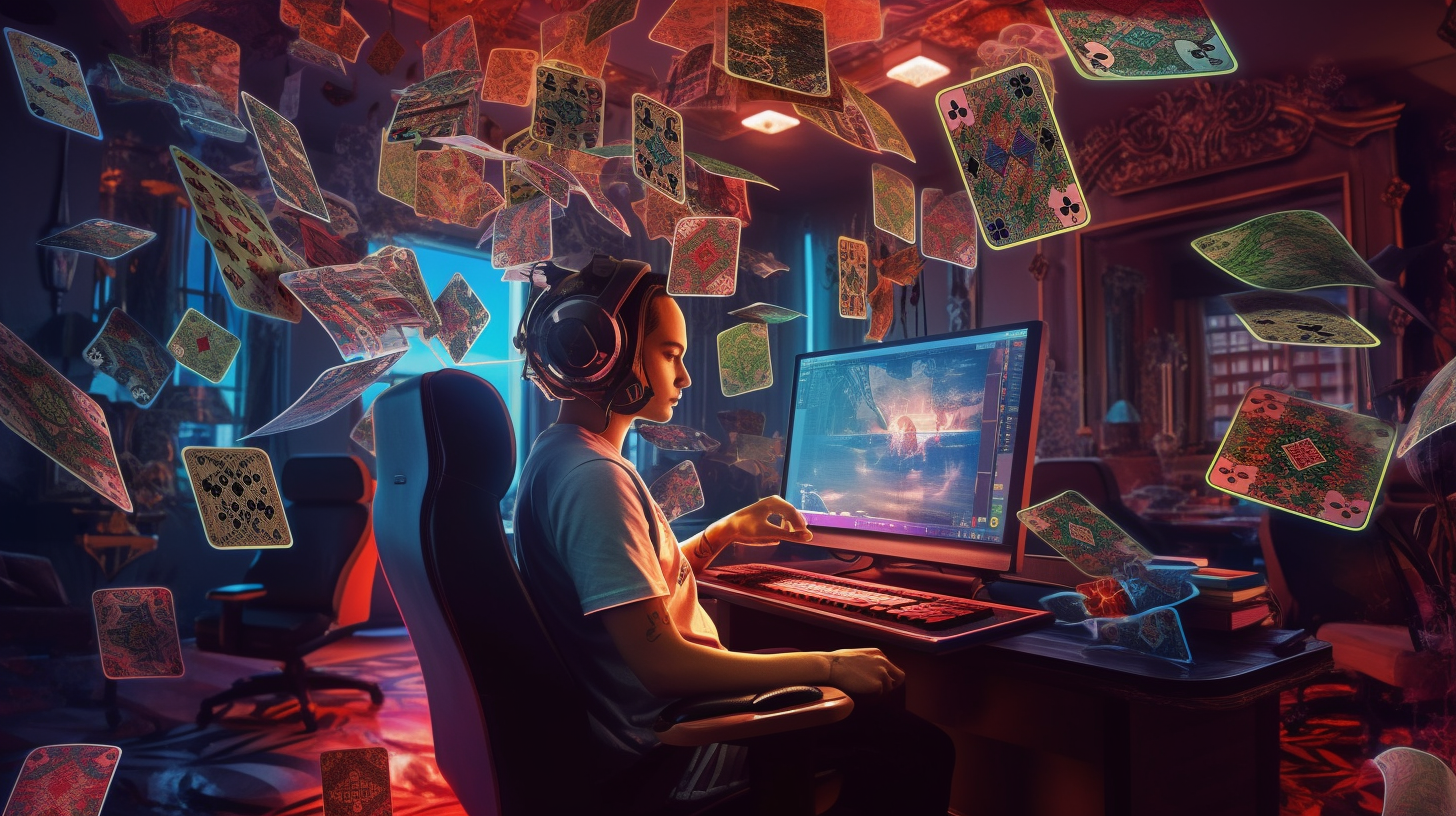The Evolving Landscape of Online Gaming in 2025: A Look at the DS
Related Articles: The Evolving Landscape of Online Gaming in 2025: A Look at the DS
Introduction
In this auspicious occasion, we are delighted to delve into the intriguing topic related to The Evolving Landscape of Online Gaming in 2025: A Look at the DS. Let’s weave interesting information and offer fresh perspectives to the readers.
Table of Content
The Evolving Landscape of Online Gaming in 2025: A Look at the DS

The year 2025 promises a significant shift in the landscape of online gaming. While the traditional consoles and PCs remain relevant, the emergence of new platforms and technologies is poised to reshape the industry. Among these, the DS (Distributed System) emerges as a potential game-changer, offering a decentralized and interconnected approach to online gaming. This article explores the potential impact of DS technology on online gaming in 2025, examining its key features, potential benefits, and the games that might emerge from this revolutionary platform.
Understanding the DS: A Decentralized Gaming Revolution
The DS, in its essence, represents a departure from the centralized server architecture that has dominated online gaming for decades. Instead of relying on a single server to host and manage all game data and interactions, the DS distributes these functions across a network of interconnected nodes. This decentralized structure offers several advantages:
- Enhanced Security: The distributed nature of the DS makes it more difficult for hackers to exploit vulnerabilities and disrupt gameplay. Data is spread across multiple nodes, making it harder to compromise the entire system.
- Improved Scalability: The DS can handle a significantly larger number of players and transactions simultaneously compared to traditional server architectures. This scalability is crucial for accommodating the ever-growing player base and the increasing complexity of online games.
- Reduced Latency: By distributing data and processing power across multiple nodes, the DS can minimize latency, resulting in smoother gameplay and faster response times. This is especially beneficial for competitive online games where milliseconds can make the difference between victory and defeat.
- Increased Transparency: The decentralized nature of the DS allows for greater transparency in game development and operation. Players can see how the game works and how their data is being used, fostering trust and accountability.
Potential Benefits of DS Technology in Online Gaming
Beyond its technical advantages, the DS holds significant potential to revolutionize the gaming experience in several ways:
- Empowering Players: The DS empowers players to participate in the development and governance of their games. Players can contribute to game design, vote on game updates, and even earn rewards for their contributions. This fosters a more collaborative and engaging gaming environment.
- Promoting Ownership and Collectibles: The DS enables the creation of unique and verifiable in-game assets, such as virtual items, characters, and even entire worlds. These assets can be traded and owned by players, creating a thriving digital economy within the game.
- Facilitating Cross-Platform Play: The DS can bridge the gap between different gaming platforms, allowing players on PCs, consoles, and mobile devices to seamlessly interact with each other. This opens up new possibilities for multiplayer experiences and fosters a more inclusive gaming community.
- Enhancing Game Economies: The DS can facilitate the development of more sophisticated and dynamic game economies. Players can earn and spend virtual currencies, trade goods and services, and participate in a vibrant marketplace within the game.
The DS in Action: Potential Games of 2025
The possibilities for DS-powered online games are vast and varied. Here are some potential examples of how this technology could be applied in 2025:
- Massively Multiplayer Online Role-Playing Games (MMORPGs): DS technology can enable the creation of truly massive and immersive MMORPGs with seamless gameplay and a thriving player economy. Players can own land, build structures, and engage in complex social interactions within a persistent virtual world.
- Competitive Esports Games: The DS can provide a more robust and reliable infrastructure for competitive online gaming, reducing latency and ensuring fair play. This can lead to the rise of new esports titles and attract a wider audience to competitive gaming.
- Augmented Reality (AR) Games: The DS can power AR games that blend the real and virtual worlds. Players can interact with virtual objects and characters in their physical environment, creating unique and engaging experiences.
- Metaverse Experiences: The DS can play a crucial role in the development of the metaverse, a persistent virtual world where people can work, play, and socialize. The DS can provide the foundation for a decentralized and scalable metaverse, ensuring security, transparency, and a vibrant user experience.
FAQs about DS Online Games
Q: What are the security risks associated with DS online games?
A: While the decentralized nature of the DS offers inherent security advantages, it is crucial to implement robust security measures to protect against potential threats. This includes using encryption, multi-factor authentication, and regular security audits to ensure the integrity of the network and player data.
Q: How will DS online games impact the gaming industry?
A: The DS has the potential to disrupt the traditional gaming industry by empowering players, fostering innovation, and creating new business models. It could lead to a shift in power dynamics, with players having greater control over their gaming experiences and the development of their games.
Q: What are the challenges of developing DS online games?
A: Developing DS online games presents unique challenges, including the need for specialized programming skills, robust infrastructure, and a strong understanding of decentralized technologies. It also requires a shift in mindset, as developers need to embrace a more collaborative and community-driven approach to game design.
Tips for Players in the DS Era
- Embrace Decentralization: Familiarize yourself with the principles of decentralization and its implications for online gaming.
- Explore New Game Genres: Be open to exploring new and innovative game genres that leverage the capabilities of the DS.
- Participate in Game Development: Consider contributing to the development of DS games by providing feedback, testing new features, or even creating your own game assets.
- Protect Your Digital Assets: Take steps to secure your digital assets, such as virtual items and currencies, using strong passwords and two-factor authentication.
Conclusion
The DS represents a significant shift in the landscape of online gaming. By embracing decentralization, the DS promises to empower players, foster innovation, and create new and engaging gaming experiences. While challenges remain, the potential benefits of this technology are undeniable. As the gaming industry continues to evolve, the DS is poised to play a pivotal role in shaping the future of online gaming, offering a more secure, transparent, and player-centric approach to the world of digital entertainment.








Closure
Thus, we hope this article has provided valuable insights into The Evolving Landscape of Online Gaming in 2025: A Look at the DS. We hope you find this article informative and beneficial. See you in our next article!